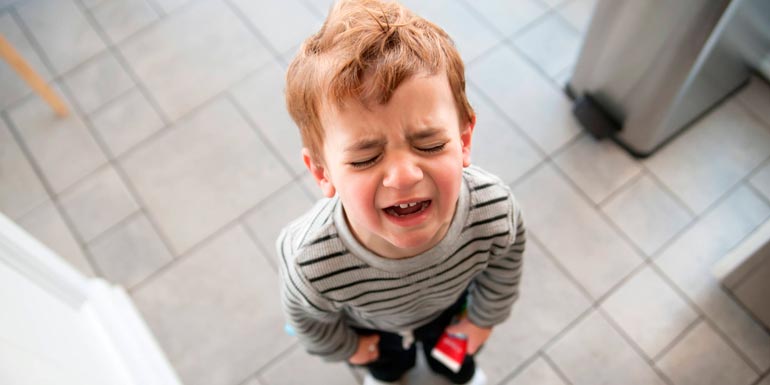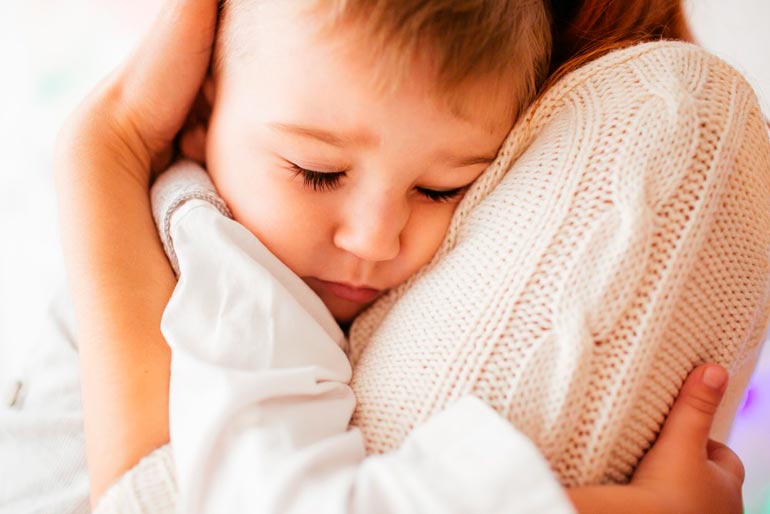Children grow up fast. Now the baby walks, talks, knows how to do a lot on its own. The child has already come out of infancy, but continues whims and tantrums? Your child does not obey and does in vain, cheating, specially breaks toys and falls with tears to the floor in the store, demanding to buy something? Parents are perplexed by this behavior. What to do? How to respond? How to turn a naughty child into a raised gentle angel? The main thing is patience. Tears of despair come to my eyes, and even if my hand in despair reaches for the belt, psychologists do not recommend physical punishment. And to cope with the baby is not so difficult if you know some secrets. Now let's talk about them.

Listen actively
Julia Gippenreiter, Doctor of Psychology, Professor, explains to parents what it means to actively listen. The specialist is sure that if negative emotions have taken hold of a child, if he experiences pain, shame, fear, fatigue, resentment, something does not work out for him, they have shown injustice or rudeness to the child, adults must make it clear that they understand his condition. Parents need to talk with the baby and name the feelings and feelings that the baby feels.
Julia Borisovna Gippenreiter: “In all cases when a child is upset, offended, failed, when he is hurt, ashamed, scared, when he was treated rudely or unfairly, and even when he is very tired, the first thing to do is to let him know that you know about his experience (or condition), “hear” him. For this, it is best to say what exactly, in your impression, the child is feeling right now. It is advisable to call “by name” his feeling or experience. ”
This recommendation is suitable for situations where a little man cannot take control of the negative emotions that have taken control of him. Many people are familiar with this situation: a boy of 4 to 5 years old does not want to give his little machine to his younger brother and shouts at him. And to parents who are trying to shame him for such behavior, he throws: “It would be better if he hadn’t!” Adults should be patient and say: “I understand your condition, you are angry, because you yourself wanted to play with your favorite car, so you are angry with your brother and do not want to share with him.” The child sees that adults understand his feelings and, most likely, will calmly start talking, after which it will be easy to find the right way out of the situation with him.
Hug children more often
This is strongly recommended by both child and adult psychologists. During hugs, the hormone oxytocin is produced, which fights stress, improves brain function and helps people feel more confident. Experts say that during hugs, the child is as if in a “parent cocoon”, where he is protected, and resentment, anger and despair recede.

Lyudmila Petranovskaya: “Hugs give a feeling of security, this is a universal way of containment: hugging your child, you are a kind of cocoon in which you can safely“ digest ”anger, resentment or despair.”
Evaluate actions, not the child
It is unlikely that any of the parents wants to cause psychological harm to their child. That is why it is worth forgetting once and for all the phrases “you are a bad girl”, “we don’t need such a boy”, “how stupid you are”, etc. Psychologists advise talking with children about the inadmissibility of actions and explain what the consequences may be. For example: “You hit a cat, and this is very bad, because it hurts, you can’t offend animals.” Praising a child must also be correct. Did he deal with a complex constructor? Wonderful! But instead of “what a fellow you are!” psychologists recommend admiring the height of the structure and the complexity of the work.
Correctly Express Discontent
What does this mean in practice? Consider the situation: mom was upset because of the behavior of the child. What, then, do parents most often say? “You made me angry, upset.” These phrases force the baby to defend himself, which only exacerbates the situation. Psychologist Julia Vasilkina recommends that parents talk about their feelings: “I got angry,” “I worry when you ...”. Such communication is much more effective on the child, because in such phrases there is no insult or accusation. However, parents should not manipulate and portray anxiety or discontent over a small misconduct.
Julia Vasilkina writes: "Sometimes parents consider it wrong to tell the child:" I got angry "or" I was upset when you ... ". No, the parent often blames: "You made me angry, you upset me." This position forces the child to defend himself. ”
Play, not command
Tired of reminding the child to remove the toys, and leaving the house for a walk drags on for an hour and a half? Try not to order, but turn cleaning or fees into a game. Psychologists advise compiling a list of tasks that must be performed sequentially during cleaning or gathering for a walk. The list needs to be hung in a prominent place so that the baby can put checkmarks, noting done. Such a list may be in the form of pictures, when it is not yet able to read. At the same time, children can compete in speed), and at the end of the week receives a small reward.
We also read:
- The child behaves badly: what to do?
- How to communicate with a naughty child - the story of one family
- What if the child does not obey you?
- 10 common causes of child disobedience
Video consultation: teacher of the Voronezh Waldorf school "Rainbow", 7th grade teacher Anastasia Vladimirovna Eliseeva answers the question of what to do if the child does not obey









I have a two year old son. We try to adhere to the advice that child psychologists give, but it doesn’t always work “like in a book”. I have long noticed that his behavior mainly depends on his mood. If it’s bad, then at least talk to him, at least explain it — all the same, he will not hear anything and will behave as he wants. But when in a good mood, then he carries out minor tasks and behaves well, he obeys.
Yes, it’s difficult with a child when he’s already kind of walking, and still completely silly. It’s especially difficult when you repeat 100 times that it’s impossible, but he’s still climbing ((How can you not break this? But when your warm baby behaves as your mother wants, then immediately a wave of tenderness covers and is ashamed of his thoughts five minutes ago. Whatever say, and your little, and big, child is happiness) I will not exchange for anything.
My son is 5 years old. In any situation, I try to restrain myself, because the child is very offended and clings even more if you shout at him and constantly scold. I never call names, cursing, I try to explain what he did wrong.
And I advise all mothers often not only to hug the baby, but to kiss him and say how much you love. My son immediately becomes joyful after these words and hugs me even more tightly. And the weight of resentment is quickly forgotten.
My child is currently 4 years old. Not so long ago, we had difficulty communicating, and faced systematic disobedience, and sometimes it was possible to observe explosions of emotions. In fact, it has become difficult to control the behavior of the son. At the same time, his age is such that he can have a verbal impact, but the desired reaction in response was not observed.
Believe me, when we change ourselves, our children change too! I realized that my child simply does not have enough attention! I just became more affectionate towards my son, we began to play joint games more often, for small achievements I began to praise him and rejoice with him for his successes. In response, the child became more patient, self-confident and, explosions of emotions passed.